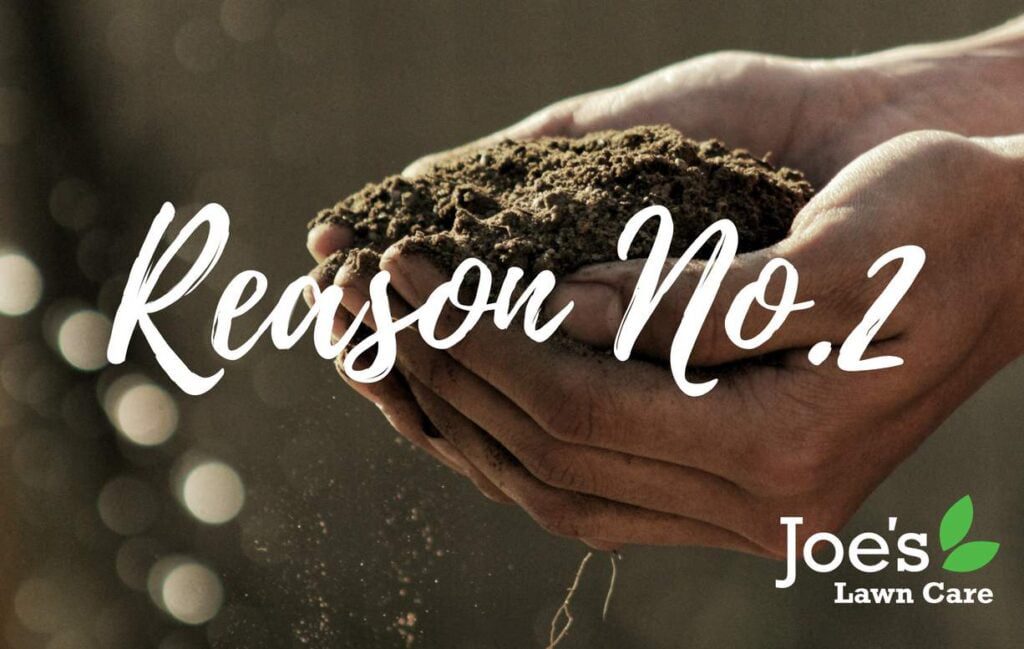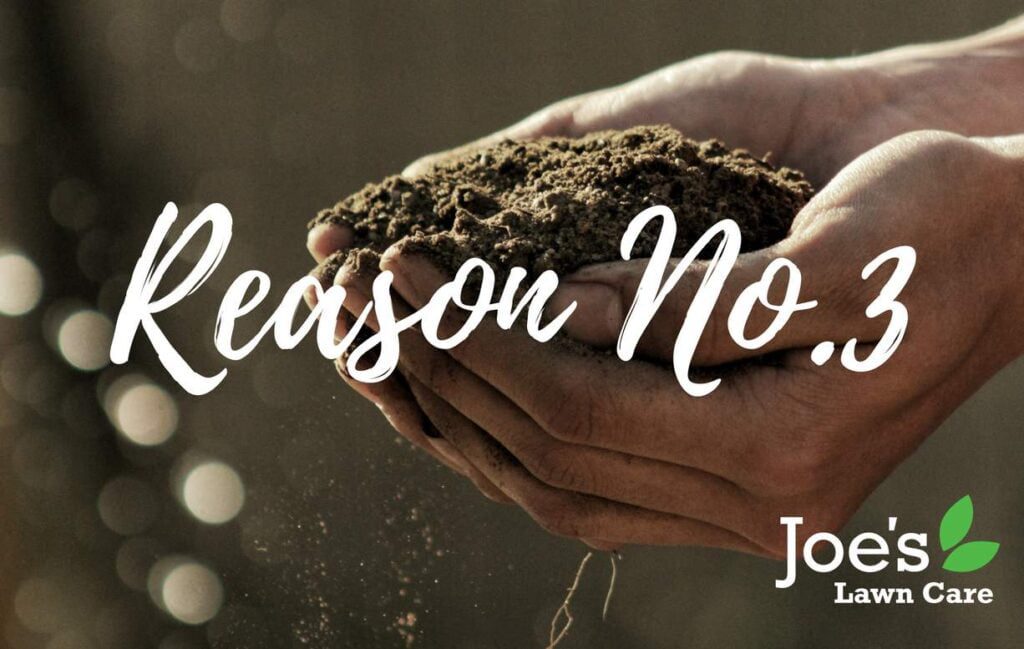5 Reasons Compost Deserves A Role In Your Autumn Lawn Care
5 Reasons Compost Deserves A Role In Your Autumn Lawn Care. From my pretty niche experience in this thing called life, it’s hard to speak on behalf of the seven billion people on planet earth, but there seem to be some things in life worth knowing a little more about. Things like how to tie your laces. How to make a beer bottle opener out of almost anything. Knowing what happened in the BBCs Bodyguard. And, probably above all of these, knowing how much organic matter is in your lawn’s soil.
Soil Test Your Lawn
Unfortunately, on that latter point, I’ve come to accept I’m one of the only people that asks for a soil test every birthday. But there’s a reason for my admittedly sad behaviour. And it’s because (spoiler alert: I’m about to get on my high horse) I want to know if my lawn’s future is looking more optimistic than the winners of Love Island. Or if it’s looking bleaker than a foggy morning in the Peak District, and that’s what a soil test helps with. “How?” I hear you screaming at your smartphone/laptop. “Simple”. I answer. “It’s because a healthy lawn should show between five and eight percent organic wonder.”
Thankfully, there is a simple way to boost the amount of organic matter in your soil. It’s called applying compost. And there is no better time to do it than now, in the autumn, when you can guarantee great results. I promise I’m not making that up either. In fact, to fill your sceptical boots with a large dollop of confidence, I’m going to give you five reasons why your autumn lawn care routine should include compost. And I’m going to give you all these reasons for free because that’s the sort of guy I am (that and because I’m not sure anyone would pay for this advice – thank you internet – although it would be nice to get confirmation on that). Anyway, here you go:
Reason Number 1 Compost Deserves A Role This Autumn
The greatest thing about autumn and winter is the fact we get to drink hot alcohol like it’s totally acceptable. The second greatest thing is that colder weather helps to work the compost into soil pretty passively. Especially in the UK where we are all but guaranteed rain and then snow and then more rain. The reason this is so great, it’s simple: it means less work for you and less disturbance for your soil. What’s more, if you’ve recently aerated your lawn (or got an aeration session booked in) you’ll find your compost is absorbed into the land so much faster. (For a little inside tip: try aerating after you’ve flung your compost about for the best results.)
Reason Number 2 Compost Deserves A Role This Autumn

By applying your compost in the autumn, you’ll actually be doing your lawn a big favour on the thatch front. Because compost is known to decompose this little lawn problem. Actually, on that note, compost is also known to be good at breaking down any dead grass roots that might have cropped up on your soil’s surface too. And if that’s not a reason to apply compost this autumn then I don’t know what is. Alas, I’ll keep trying.
Reason Number 3 Compost Deserves A Role This Autumn

Believe it or not (and, in all honesty, I don’t know why you wouldn’t believe this because I’m a pretty stand-up guy). Compost is actually a pretty delicious meal in the eyes of all those beneficial soil microbes that are still active. Even though it’s well past the end of the growing season. That said, it’s not just about filling their bellies now because the compost you apply in the autumn will still be nourishing your soil microbes come next spring. Which is when they’ll begin to become super-active again.
Reason Number 4 Compost Deserves A Role This Autumn

If you’re even slightly interested in lawn care, you’ll probably know that soil compaction sucks. Like really sucks. In fact, it’s one of the most mischievous deterrents when it comes to growing a lush lawn. Thankfully, a bit of autumn compost application has been known to counter this problem.
Of course, you’re probably tapping your chin, wondering how to tell if you’re soil is compacted or not. Well, the easiest way to tell is to pop into your shed, try and find your shovel and then push it into your lawn. If you can’t get it to sink in more than three inches, then you’re probably looking at some dense soil. And that is going to stop you from growing a healthy lawn. Fact. That said, another way to check for compacted soil is to have a peek out of your kitchen window after a bit of rain and look for any puddles. Either way, applying compost in the autumn is a great way to loosen it up naturally.
Reason Number 5 Compost Deserves A Role This Autumn

One of the reasons why people prefer applying compost in spring and not autumn is because no one wants to get a cold face. Especially this far-off from the growing season. But what these people might not know is: applying compost in the spring comes with a handful of drawbacks. The most annoying of these is insects. They love spring compost. Why? Because it’s fresher and that means it boasts more moisture. But more moisture means better conditions for little mummy beetles to come and lay their little beetle eggs. Alas, the best way around this nuisance of a problem is to get the majority of your composting done in the autumn. Schimples.
Thanks for reading! For more lawn care tips and tricks, follow us on Facebook and Instagram.





